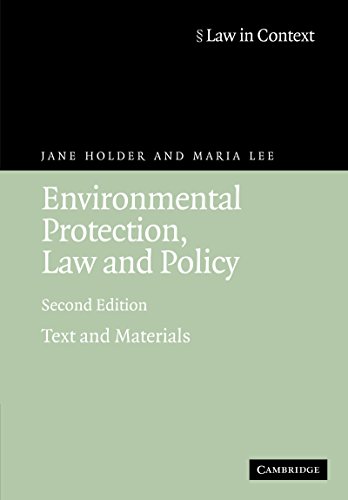
By Jane Holder,Maria Lee

By Jane Holder,Maria Lee
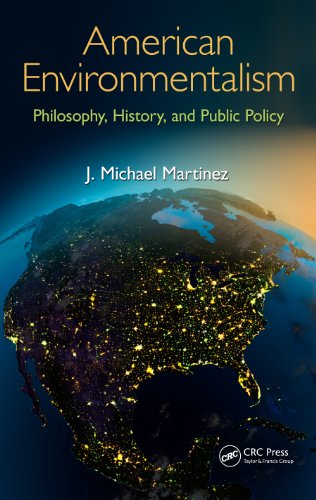
By J. Michael Martinez
Protecting the normal surroundings and selling sustainability became vital targets, yet reaching such objectives provides myriad demanding situations for even the main devoted environmentalist. American Environmentalism: Philosophy, background, and Public Policy examines even if competing pursuits should be reconciled whereas constructing constant, coherent, powerful public coverage to manage makes use of and security of the average atmosphere with out destroying the nationwide economic climate. It then stories a variety of attainable solutions.
The ebook delves into key normative options that undergird American views on nature through supplying an summary of philosophical suggestions present in the western highbrow culture, the presuppositions inherent in neoclassical economics, and anthropocentric (human-centered) and biocentric (earth-centered) positions on sustainability. It lines the evolution of attitudes approximately nature from the time of the traditional Greeks via Europeans within the heart a long time and the Renaissance, the Enlightenment and the yankee Founders, the 19th and 20th centuries, and as much as the current. development in this origin, the writer examines the political panorama as non-governmental corporations (NGOs), leaders, and govt officers fight to stability business improvement with environmental concerns.
Outrageous claims, foolish misrepresentations, bogus arguments, absurd contentions, and overblown prophesies of approaching calamities are bandied approximately through many events on both sides of the debate—industry spokespeople, elected representatives, unelected regulators, involved electorate, and environmental NGOs alike. In lieu of descending into this morass, the writer circumvents the silliness to discover the an important matters via a extra concentrated, disciplined process. instead of interact in acrimonious debate over trivialities, as so frequently happens within the context of "green" claims, he recasts the difficulty in a fashion that gives a cohesive examine both sides. This attempt can be quixotic, yet how else to chop the Gordian knot?
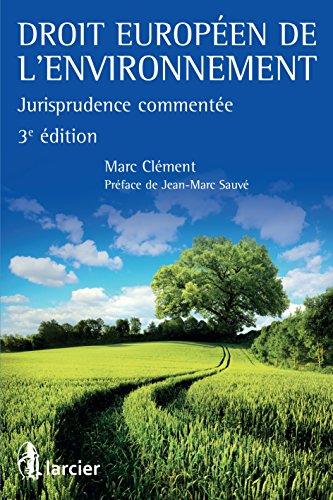
By Marc Clément,Jean-Marc Sauvé
Les arrêts de los angeles Cour de justice permettent de bien comprendre les enjeux concrets de ce droit.
Cette troisième édition de l’ouvrage est considérablement enrichie des apports substantiels de los angeles jurisprudence européenne apparus depuis 2012, y compris en matière de changement climatique, et suggest le commentaire de thirteen nouveaux arrêts ainsi que des mises à jour concerns des législations adoptées.
L’ouvrage offre tant au praticien (magistrats, avocats, juristes d’entreprise) qu’aux acteurs de ce droit (législateur, businesses non gouvernementales) un accès direct à ces textes et une mise en viewpoint dans un souci de pédagogie qui inclut les développements les plus récents de l. a. jurisprudence.
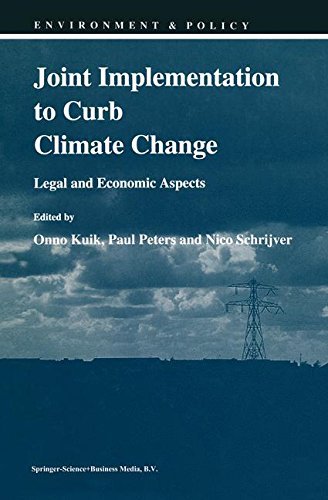
By Onno J. Kuik,Paul Peters,Nico Schrijver
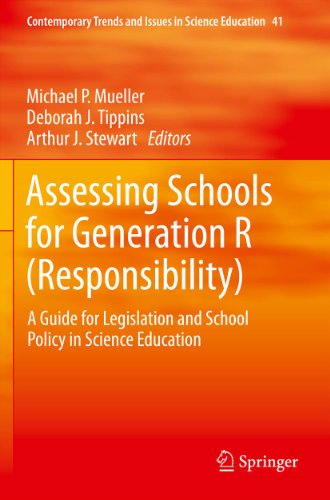
By Michael P. Mueller,Deborah J. Tippins,Arthur J. Stewart
Today’s formative years will face international environmental alterations, in addition to complicated own and social challenges. to handle those concerns this number of essays offers very important insights on how technological know-how schooling could be designed to higher interact scholars and support them remedy very important difficulties on the planet round them.
Assessing faculties for iteration R (Responsibility) contains theories, study, and practices for envisioning how technological know-how and environmental schooling can advertise own, social, and civic accountability. It brings jointly inspiring tales, inventive practices, and theoretical paintings to make the case that technology schooling will be reformed in order that scholars discover ways to meaningfully practice the thoughts they research in technology periods throughout the United States and develop into civically engaged electorate. The ebook demands a curriculum that equips scholars with the data, abilities, attitudes and values to confront the complicated and infrequently ill-defined socioscientific problems with day-by-day life.
The authors are all skilled educators and most sensible specialists within the fields of technology and environmental schooling, ecology, experiential schooling, academic philosophy, coverage and heritage. They study what has to occur within the domain names of instructor guidance and public schooling to influence a transition of the formative years of the USA.
This intriguing, informative, subtle and occasionally provocative booklet will stimulate a lot debate in regards to the destiny path of technological know-how schooling in the United States, and the remainder of the area. it really is excellent studying for all college superintendents, deans, college, and policymakers searching for how to enforce a curriculum that is helping builds scholars into in charge and engaged citizens.
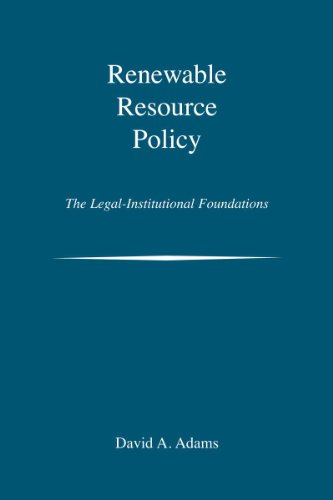
By David A. Adams
Renewable source Policy is a finished quantity masking the background, legislation, and significant nationwide rules that impact renewable source administration. the writer strains the background of renewable typical source coverage and administration within the usa, describes the key federal organisations and their capabilities, and examines the evolution of the first source coverage areas.
The booklet offers worthy perception into the customarily missed felony, administrative, and bureaucratic point of traditional source administration. it's a definitive and crucial resource of data masking all aspects of renewable source coverage that brings jointly a impressive diversity of knowledge in a coherent, built-in form.
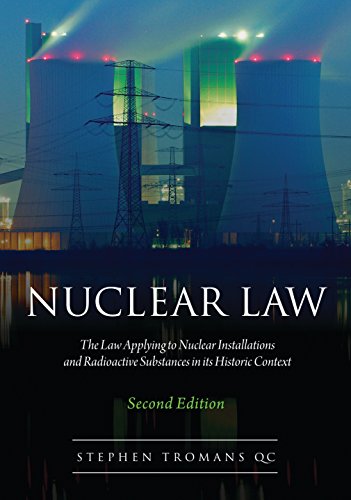
By Stephen Tromans
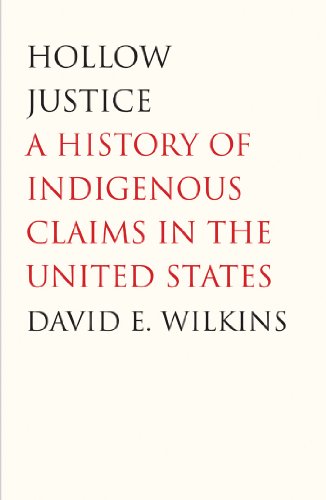
By David E. Wilkins
This e-book, the 1st of its style, comprehensively explores local American claims opposed to the USA executive during the last centuries. regardless of the federal government’s a number of makes an attempt to redress indigenous claims, an in depth exam unearths that even if compensatory courses have been instituted, local peoples by no means attained a real experience of justice. David E. Wilkins addresses the real query of what one state owes one other whilst the stability of rights, assets, and tasks were negotiated via treaties. How does the us guarantee that promises made to tribal countries, no matter if via a century previous treaty or a contemporary day compact, stay practicable and lasting?

By Marion Clawson,Jack L. Knetsch

By Eric T. Freyfogle